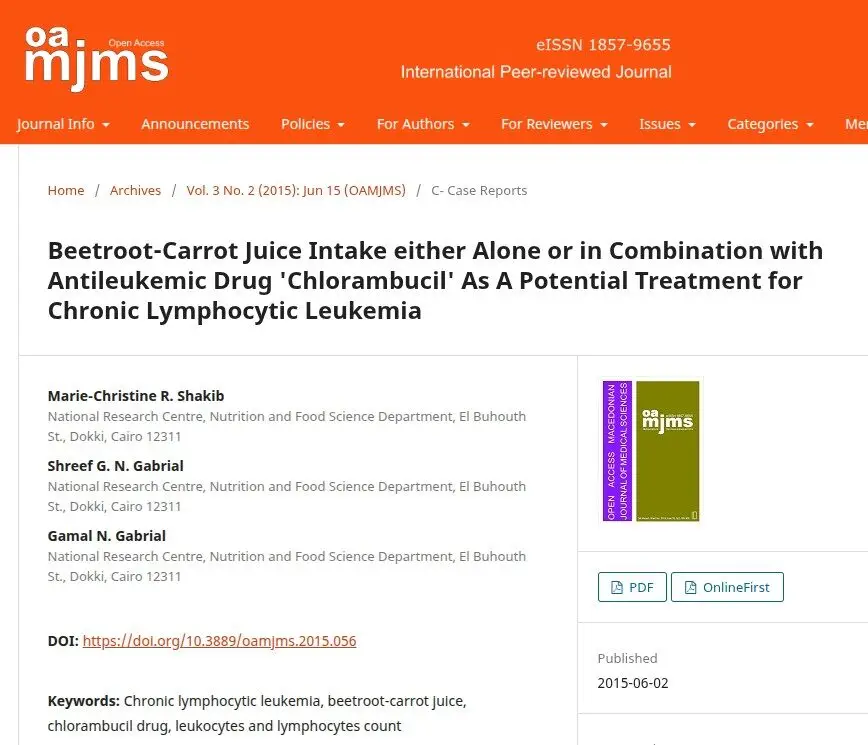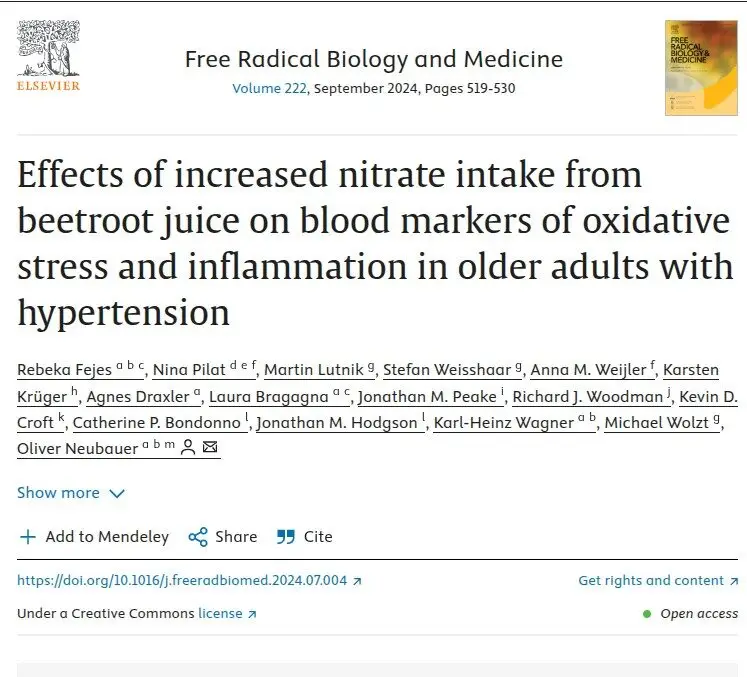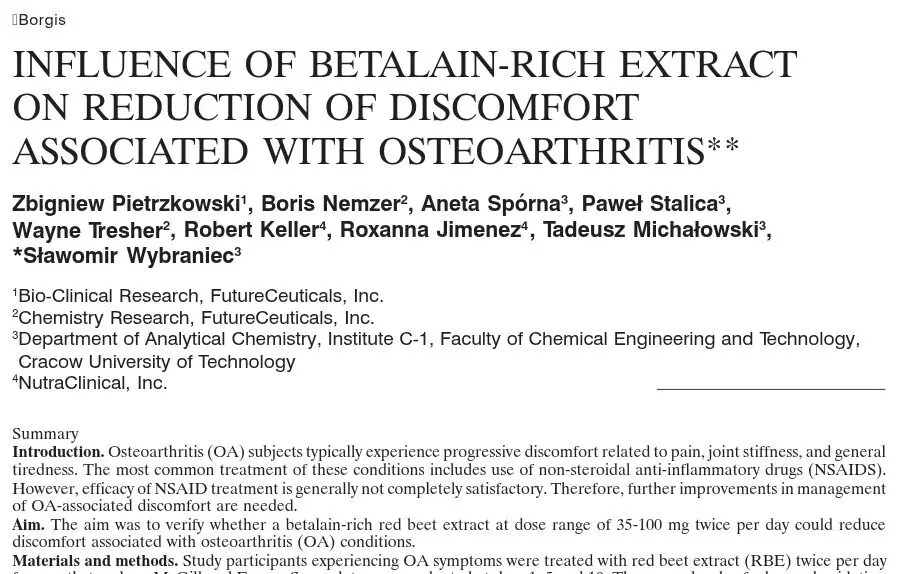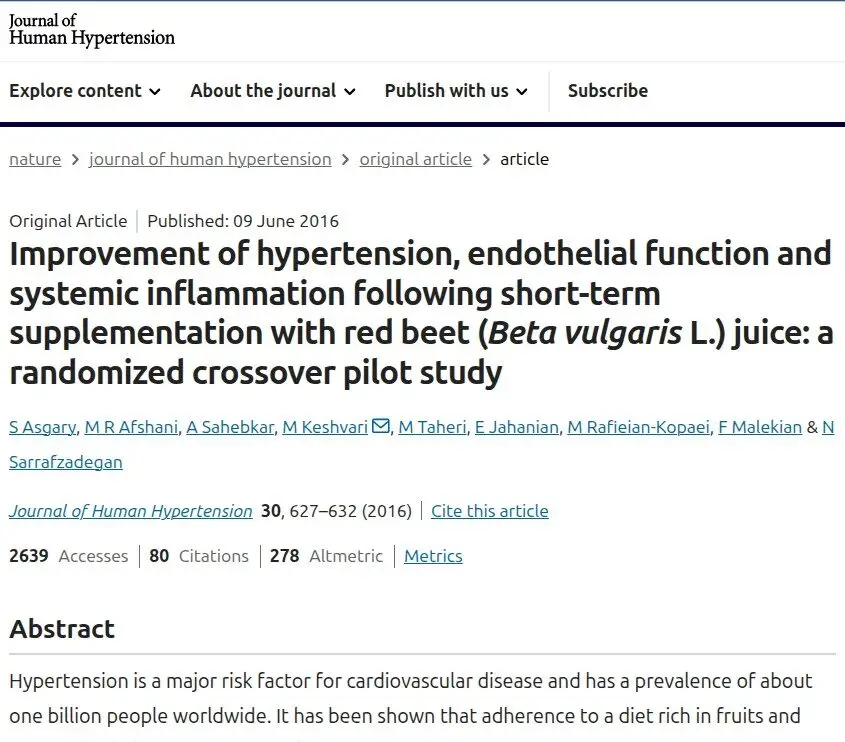Clinical trials frequently use beetroot as a concentrated juice in dose ranges 2 x 70mL daily, not higher. Due to its benefits to athletic performance, some researchers have proposed beetroot supplementation during oncology for preservation of muscle mass. Clinical evidence is, however, limited to a single 2015 case study in leukemia where beetroot-carrot juice significantly improved a patient outcome with standard oncology drugs. (Highlight 1)
2024 research in cardiovascular disease with daily 2x 70mL beetroot juice showed measurably improved oxidative stress, immune cell profiles, and LDL cholesterol (Highlight 2). The weakening of blood vessel integrity through systemic inflammation has been shown in pre-clinical animal trials to play a crucial role in metastasis, including in breast cancer. Poor blood vessel health is linked to high metastatic spread in these lab studies. Studies on inflammatory markers show some positive effects, particularly with more than 3-4 weeks of intake, where c-reactive protein levels decined in at least one, but not all, trials. Some effects have also been shown in reducing vascular cellular adhesion, in some trials.
There is evidence of reduced levels of platelet aggregation as an effect of beetroot juice and indications in lab study of reduced adhesion but more is needed to classify this as anti-metastatic.
In osteoarthritis clinical studies, the nitrate rich betalains in beets showed reductions in the range of one third to a half in levels of Advanced Oxidation Protein Products (AOPPs). These biomarkers of oxidative stress and inflammation have been strongly associated to breast cancer progression in a 7 year patient follow up study from 2024, and in other research similarly linked with kidney cancer. (Highlight 3). AOOP levels are proposed as a diagnostic marker in oncology.
In other disease sudies, results included improvements in microbiota, with several key bacteria including akkermansia and roseburia increasing their natural levels, driving some of the effects seen in cardivascular health.




